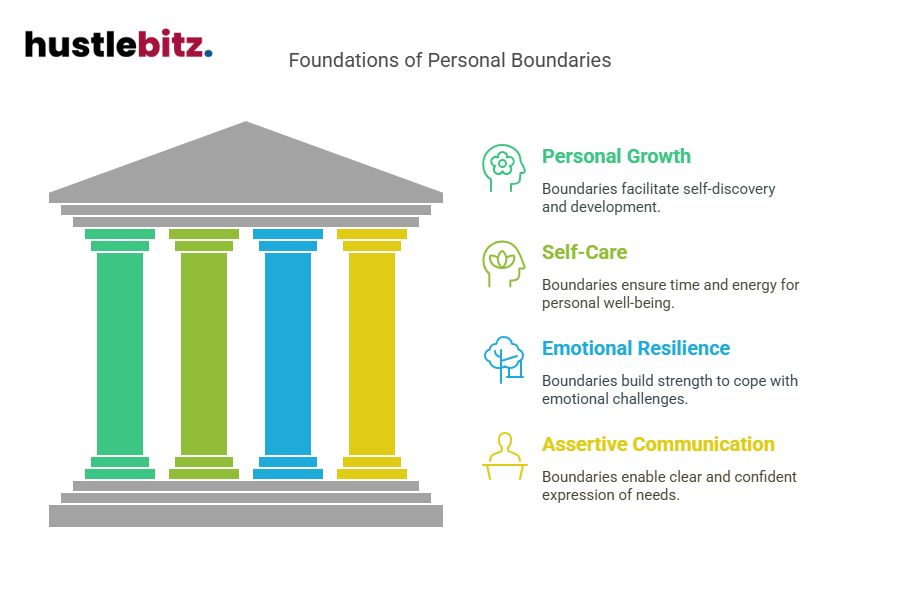Setting boundaries is crucial for maintaining personal well-being and emotional health. Empowering quotes can reinforce the importance of saying “enough is enough” in both personal and professional contexts. For instance, “Boundaries are the distance at which I can love you and me simultaneously” emphasizes the balance necessary in relationships. Moreover, asserting boundaries fosters respect, encourages open dialogue, and enhances self-awareness. Quotes like “Your value doesn’t decrease based on someone’s inability to see your worth” remind us of our inherent value. Explore how these insights can further guide your journey toward healthier interactions and assertive communication.
Key Takeaways
- Setting boundaries fosters personal growth, self-care, and emotional resilience through clear limits on acceptable behavior.
- Empowering quotes reinforce self-worth and assertive communication, helping individuals express their needs effectively.
- Recognizing toxic relationships is crucial for proactive boundary-setting to protect emotional health and promote personal growth.
- Healthy boundaries in friendships encourage honest communication, mutual respect, and reduce stress by managing expectations.
- Saying no with clear language and assertiveness helps maintain personal limits without feeling guilty, enhancing overall well-being.

The Importance of Setting Boundaries
Setting boundaries is crucial for maintaining healthy relationships and ensuring personal well-being, as it establishes clear parameters for acceptable behavior and mutual respect.
Boundaries serve as essential guidelines that help individuals navigate the complexities of interpersonal dynamics, fostering an environment conducive to personal growth and self-care. By defining what is acceptable and what is not, individuals safeguard their emotional resilience, enabling them to respond effectively to challenges without compromising their mental health.
Moreover, the practice of setting boundaries is fundamentally linked to assertive communication. It empowers individuals to express their needs and desires clearly, refusing to accept behaviors that undermine their well-being. This assertiveness not only reinforces self-respect but also cultivates healthy relationships, as it encourages open dialogue and understanding among peers, family members, and colleagues.
In prioritizing boundary-setting, individuals engage in self-care practices that promote a balanced lifestyle. This proactive approach allows individuals to allocate their time and energy towards relationships and activities that align with their values and aspirations.
Consequently, the establishment of boundaries enhances emotional resilience, allowing individuals to recover more swiftly from setbacks and stressors.
Understanding Your Personal Limits

Recognizing and understanding your personal limits is a fundamental aspect of effective boundary-setting, as it enables individuals to identify what they can tolerate and what may lead to discomfort or distress. This self-awareness is crucial for personal growth, allowing individuals to reflect on their experiences, feelings, and reactions. By engaging in this reflective practice, one can develop a clearer understanding of their emotional and physical limits.
Emotional intelligence plays a significant role in this process, as it involves recognizing one’s own emotions and how they affect interactions with others. Higher emotional intelligence allows individuals to set more appropriate boundaries, fostering healthy relationships. When you know your limits, you can communicate them effectively, ensuring that others respect your needs.
Incorporating self-care strategies is another essential component of understanding personal limits. Prioritizing self-care not only enhances well-being but also reinforces the importance of personal boundaries. Activities such as journaling, meditation, or seeking professional support can help individuals gain insight into their limits and the reasons behind them.
Ultimately, by cultivating self-awareness and emotional intelligence, individuals are better equipped to navigate their relationships and assert their needs. This understanding promotes healthier interactions and empowers individuals to say ‘enough is enough’ when necessary, leading to a more balanced and fulfilling life. Recognizing personal limits is not merely a practice of self-protection; it is an essential step towards achieving authentic and enriching connections with others.
Recognizing Toxic Relationships

How can individuals identify toxic relationships that undermine their well-being and personal growth?
Recognizing toxic dynamics in relationships requires a keen awareness of various emotional and behavioral indicators. One significant red flag is persistent emotional detachment, where one partner exhibits a lack of empathy, support, or interest in the other’s feelings. This detachment can lead to a sense of isolation, making it challenging for individuals to communicate effectively.
A critical aspect of self-worth evaluation comes into play when assessing the impact of a relationship. If interactions consistently diminish one’s self-esteem or provoke feelings of inadequacy, it may signify a toxic environment. Individuals should be vigilant for relationship red flags such as manipulation, excessive criticism, or a pattern of blame-shifting, all of which contribute to a communication breakdown that hinders healthy dialogue.
Additionally, recognizing the imbalance of power in a relationship is crucial. When one partner consistently prioritizes their needs over the other’s, it may create a cycle of dependency that stifles personal growth. Self-reflection and honest conversations with trusted friends can aid in identifying these detrimental patterns.
Ultimately, acknowledging these signs enables individuals to take proactive steps toward setting boundaries. By fostering an awareness of toxic dynamics, individuals can prioritize their emotional health and cultivate more fulfilling, supportive relationships. This process is essential for achieving personal growth and overall well-being, empowering individuals to declare, “enough is enough.”
Empowering Quotes for Self-Assertion

Empowering quotes for self-assertion serve as powerful reminders that individuals have the right to express their needs and establish boundaries in their relationships.
These affirmations bolster self-worth and reinforce the importance of assertive communication, enabling individuals to claim their space and advocate for their emotional well-being.
By embracing these quotes, one can cultivate emotional resilience and personal empowerment, essential tools for navigating life’s challenges with confidence.
Consider these empowering quotes that emphasize boundary clarity and self-assertion:
- ‘Your value doesn’t decrease based on someone’s inability to see your worth.’
This quote serves as a self-worth affirmation, reminding individuals that their value is inherent and not contingent upon external validation. - ‘Boundaries are the distance at which I can love you and me simultaneously.’
This quote highlights the importance of maintaining healthy limits in relationships, allowing for mutual respect and understanding while safeguarding personal needs. - ‘The most important thing in communication is hearing what isn’t said.’
This underscores the essence of assertive communication, urging individuals to be attentive not only to spoken words but also to unspoken emotions and needs.
Incorporating these insights into daily life fosters a culture of respect and understanding, empowering individuals to articulate their needs and establish boundaries that support their emotional health.
Quotes for Professional Boundaries

Establishing clear professional boundaries is essential for fostering a respectful work environment and ensuring personal well-being. In a dynamic professional landscape, it becomes crucial to articulate one’s limits while maintaining a commitment to professional integrity.
The following quotes encapsulate the essence of setting boundaries effectively:
- ‘Boundaries are the key to preserving workplace respect and enhancing collaborative efforts.’ This quote emphasizes the importance of establishing limits to promote a culture of mutual respect among colleagues.
- ’Effective communication strategies begin with knowing when to say no.’ By recognizing the necessity of boundaries, professionals can communicate their needs assertively, leading to improved interactions.
- ’Assertive leadership is about balancing empathy with boundaries.’ This highlights how leaders can foster a supportive environment while still upholding necessary limits.
- ‘Setting boundaries is not about being rigid; it’s about knowing your worth.’ Understanding and valuing oneself is fundamental in establishing boundaries that protect personal and professional interests.
- ’Conflict resolution thrives in spaces where boundaries are respected.’ This statement underscores the role of clear boundaries in minimizing misunderstandings and maintaining harmony in the workplace.
These quotes serve as powerful reminders that boundaries are not just personal limitations but essential components of a healthy and productive work environment.
Friends: Knowing When to Say No
Navigating friendships often requires the ability to recognize and communicate personal limits, particularly when it comes to saying no. Establishing boundaries is essential for maintaining healthy friendship dynamics that support individual well-being.
When faced with peer pressure or demands from friends, it is crucial to employ self-care strategies and assertiveness training to maintain your emotional health.
Here are three key strategies for knowing when to say no:
- Assess Your Feelings: Before responding to a friend’s request, take a moment to evaluate your emotional state. Are you feeling overwhelmed or stretched thin? Recognizing your feelings is the first step toward maintaining your boundaries and prioritizing your well-being.
- Practice Assertiveness: Communicating your limits is an essential part of emotional intelligence. Use clear and direct language to express your needs without feeling guilty or apologetic. Remember, saying no does not equate to rejecting your friend; rather, it reflects your commitment to self-care.
- Establish Priorities: Reflect on your commitments and what is most important to you. Prioritizing your time and energy can help you make informed decisions about when to participate in activities and when to decline, thus ensuring you nurture friendships that are mutually supportive.
Incorporating these strategies allows for healthier interactions, ultimately contributing to the resilience of your friendships while safeguarding your personal well-being.
Final Thoughts
Setting boundaries is a fundamental practice for maintaining emotional well-being, fostering healthy relationships, and asserting self-worth. Empowering quotes and insights serve as valuable reminders that establishing limits is essential for personal growth and self-care. By recognizing your personal limits, identifying toxic relationships, and embracing assertive communication, you create a foundation of respect and understanding in both personal and professional settings. Saying “no” when necessary is not only a reflection of self-awareness but also an act of self-preservation. Remember, boundaries are tools for nurturing relationships that align with your values and for safeguarding your mental and emotional health. Keep empowering yourself by reinforcing your worth and fostering interactions that contribute to your overall well-being.




